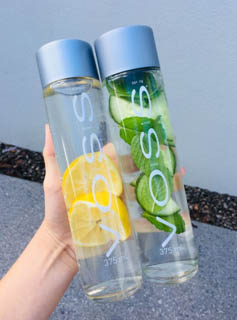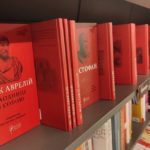
(opinion article)
Lisa Mosconi, a doctor of neuroscience and nuclear medicine, researcher of Alzheimer’s disease, wrote an excellent book, “Brain Food: The Surprising Science of Eating for Cognitive Power”, in which she talks about the impact of nutrition on work, health, and longevity of the brain.
So what do you need to pay attention to?
- The brain needs water
The brain is almost 80% water. This is more than in the whole body. To work efficiently, brain cells need a balance of water and other elements — minerals and salts. It is proved that a decrease in the water level of only 3-4% instantly affects the water balance of the brain, causing a number of problems, for example, fatigue, confusion, decreased energy level, a headache and mood changes. The norm depends on the amount of physical activity or climate. But 8 cups, that is, almost 2 liters of water, remain the optimal amount of liquid for the average resident of the city.
- Fruit as a source of water
If for some reason it is difficult for you to pour in 2 liters of water per day, remember that up to 20% of the liquid we can get from fruits, berries, and vegetables. Among the vegetables, cucumbers and lettuce, which are 96% water, are the record holders. This is followed by zucchini, radishes, celery, and after them — tomatoes, eggplant, broccoli, bell peppers, and spinach. Of all the berries and fruits, it is the watermelon that contains the largest amount of water (93%); it is followed by strawberries, grapefruit, and cantaloupe (melon subspecies).
- Protein benefits
Proteins are the third most important nutrient for brain health. Proteins are complex molecules that perform part of the work in our cells, they are also needed for the structure, activity and regulation of brain networks. So that all cognitive functions do not limp, the brain must receive a portion of proteins daily.
- Looking for glucose
Brain activity constantly requires “refueling” with electrical impulses. Their neurons are used to form neurotransmitters and communicate with each other. This process requires a lot of energy from glucose. “From the point of view of neural nutrition, carbohydrates such as glucose are definitely not our enemies, because they are indispensable for the proper functioning of the brain and cognitive activity. The human brain is so dependent on glucose that it has even developed a mechanism that turns other sugars into glucose. The best natural sources of glucose are green onions, rutabaga, dried apricots, kiwi, grapes, beets, honey.
Don`t forget that you are what you eat. That`s why don`t be Fat, Fast Food, or Fake!
So, do you eat healthily?


























































Залишити відповідь